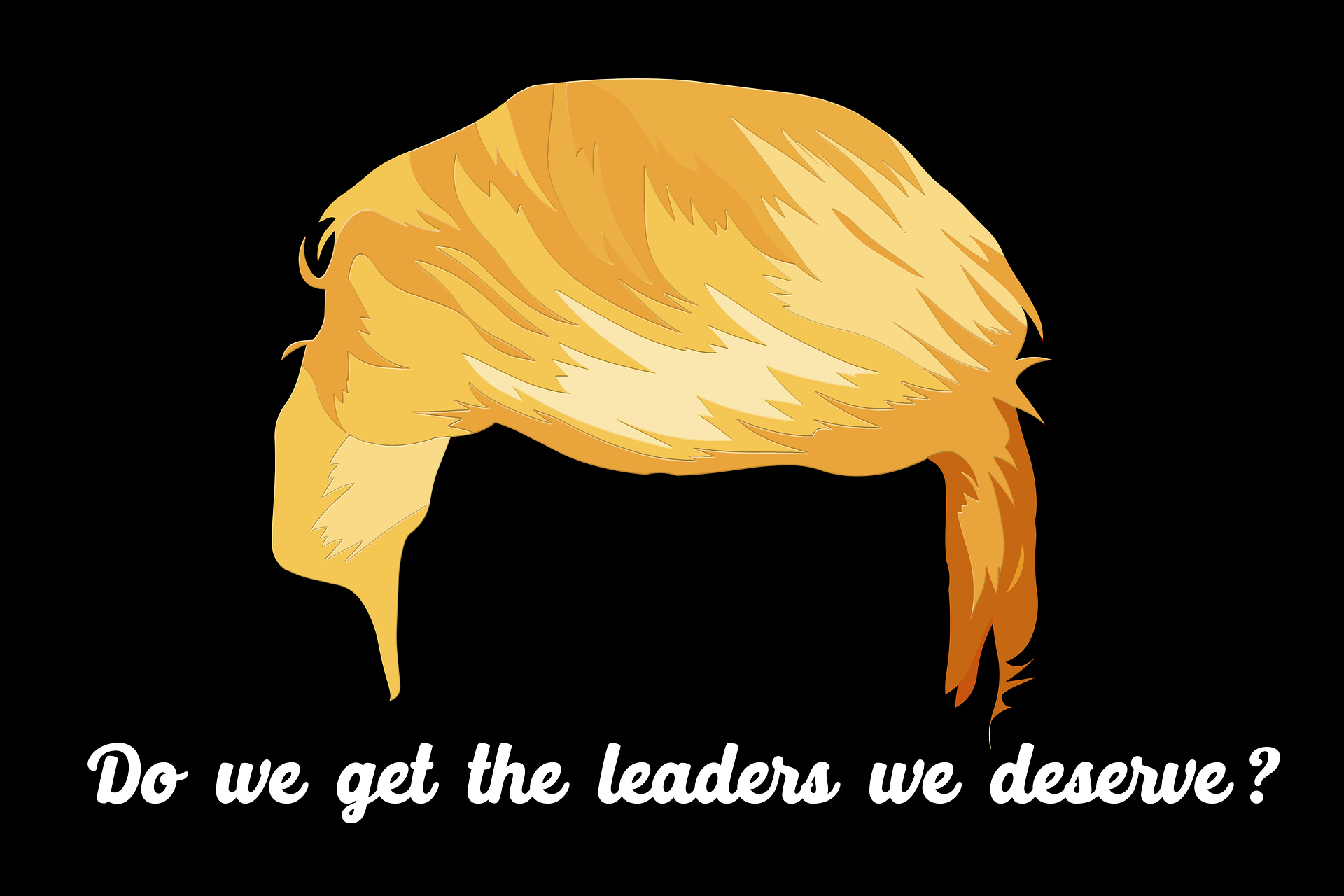 Submitted by Legends Call on
Submitted by Legends Call on

pixabay.com
Paradox: How does a supposedly bad man appoint good people eager to advance a conservative agenda that supposedly more moral Republicans failed to realize? We variously read that Trump should be impeached, removed, neutralized — or worse. But until he is, are his appointments, executive orders, and impending legislative agenda equally abhorrent?
General acclamation followed the Trump appointments of retired Generals H. R. McMaster as national-security adviser, James Mattis as defense secretary, and John Kelly to head Homeland Security. The brief celebration of Trump’s selections was almost as loud as the otherwise daily denunciations of Trump himself. Trump’s equally inspired decisions, such as the nomination of Neil Gorsuch to the Supreme Court and Jeff Sessions as attorney general, presented the same ironies.
Most of these and other fine appointments came amid a near historic pushback against Trump, mostly over what he has said rather than what he’s done. But again, do the appointments create a dilemma for his existential critics who have gone beyond the traditional media audit of a public official and instead descended into calls for his removal — or worse? Indeed, removal chic is now widespread, as even conservatives ponder impeachment, invoking the 25th Amendment for mental unfitness, while the more radical (here and abroad and both Right and Left) either abstractly or concretely ponder a coup or some other road to his demise.
How do his opponents square such excellent appointments with Trump himself? Even bad people can occasionally do good?
Are his Cabinet secretaries patriotically (as I believe) serving their president, even if prepared at times to nudge him away from what they might feel are occasional unwise detours? Appointees of the caliber of a Mattis, McMaster, or Kelly do not go to work for any president with the likelihood of becoming undercover actors — undercutting his authority, or posing to the press that they are the moral superior to their boss, or leaking information to massage favorable accounts of their superior savvy or morality at the president’s expense. No, they serve the president because they want their country to prosper and think that it can if their commander in chief (whose agendas for the most part they share) is successful.
Or do critics argue that such fine men and women are “selling out” by putting careers before principled resistance to a president who will supposedly usher in unprecedented disasters? So far, even the most vehement Trump censors have not faulted these fine appointees for supposedly being soiled by association with Trump, whom they have otherwise accused, in varying degrees, of partaking of fascism, Stalinism, and Hitlerism.
Again, the point is, How do critics square the circle of damning Trump as singularly unfit while simultaneously praising his inspired appointees, who, if they were to adopt a similar mindset, would never set foot in a Trump White House? How does someone so unqualified still manage to listen to advice or follow his own instincts to appoint so many willing, gifted public servants — at a time, we are told, when nearly the entire diplomatic and security establishment in Washington refuses to work for such a reprobate?
The same disconnect holds true for Trump’s executive orders. Except for the rocky rollout of the temporary ban on immigration — since rectified and reformulated — his executive orders seem inspired and likely to restore the rule of law, curb endless and burdensome new regulations, address revolving-door ethics, enhance the economy, halt federal bloat, promote energy production, and create jobs. Without the Trump victory, the Paul Ryan agenda — radical tax reform and deregulation — that has been comatose for a decade would never have become viable. So, is the position of the conservative rejectionists something like the following: “I detest Trump because even his positive agendas are spoiled by his sponsorship?”
Or do they reason that because his views deviate from free-market economics (when he jawbones companies and aims to renegotiate bilateral rather than multi-country trade deals, or use quid pro quo import taxes), so too his otherwise conservative positions on social issues, school choice, Obamacare’s repeal, defense spending, and tax reform are likewise suspect or irrelevant? Of course, his leftist critics face no such dilemmas and are far more consistent: They hate the Trump the man, and they hate Trump’s initiatives, and the two to them are inseparable and logical consequences of each other.
I thought that both Bush presidents were fine and good men and their agendas far preferable to the alternative. But was either in a political position to effect (or perhaps even willing to embrace) the sort of conservative change that the supposedly “not a conservative” Trump might well attempt? That irony too raises another metaphysical question: Does the Trump moment come despite or because of his take-no-prisoners rhetorical style? Does the Trump moment come despite or because of his take-no-prisoners rhetorical style?
In some sense (to adopt a taboo military metaphor) is Trump a sort of shaped charge? That is, is Trump’s combative coarseness the radiant outer shell that is necessary to melt through the deep state and bureaucratic armor so that the inner explosive of a conservative revolutionary agenda may reach its target intact? Given the hysterical and entrenched opposition, I’m not sure that John McCain or Mitt Romney would have enforced immigration law, frozen government hiring, or embraced Reagan-like tax and regulatory reform, although to be sure, McCain and Romney would have avoided Trump’s rhetorical excesses, his Twitter storms, and his occasional coarseness.
Which should properly be more exasperating: Trump’s over-the-top rhetoric that accompanies a possibly revolutionary and realized conservative agenda, or McCain and Romney’s sober and judicious failures at pushing a mostly Bush-like agenda? By not fighting back in take-no-prisoner terms, both Republican candidates failed, ensuring eight years of Obama — years that in my view have done far more damage to the country than anything envisioned by Trump’s first administration. Even conservatives sometimes seem more bothered by Trump’s raw uncouthness in service to a conservative agenda than they were by Obama’s sautéed orneriness in advancing progressive hope and change.
Even conservatives sometimes seem more bothered by Trump’s raw uncouthness in service to a conservative agenda than they were by Obama’s sautéed orneriness in advancing progressive hope and change. Years of the Cairo Speech, the apology tours, the Iran deal, the Iraq pullout, Obamacare, record debt and low growth — editorialized by chronic attacks on Fox News, along with “you didn’t build that,” “punish our enemies,” and “I won” putdowns from Obama — never prompted calls for the 25th Amendment like those in some anti-Trump tweets. Is the difference predicated on class, accent, education, tone, appearance, tastes, comportment, or the idea that a shared Beltway culture trumps diverse politics? If a polished and now-president Marco Rubio had the same agendas as Trump, but avoided his rhetoric and bluster, would anti-Trump conservatives be pro-Rubio? And would Rubio’s personality and cunning have ensured his election and confidence in steamrolling such an agenda through the Congress?
I don’t have easy answers to any of these paradoxes but will only suggest that in the last 40 years, despite three different Republican administrations, frequent GOP control of the House and Senate, and ostensible Republican majorities on the Supreme Court, the universities have eroded, the borders have evaporated, the government has grown, the debt has soared, the red–blue divide has intensified, identity politics have become surreal, the nation’s infrastructure has crumbled, the undeniable benefits from globalism have increasingly blessed mostly an entrenched elite, the culture has grown more crass and intolerant, the redistributive deep state has spread, and the middle classes have seen their purchasing power and quality of life either stagnate or decline.
In sum, it is far more difficult in 2017 to enact conservative change than it was 40 years ago — not necessarily because the message is less popular, but because government is far more deeply embedded in our lives, the Left is far more sophisticated in its political efforts to advance a message that otherwise has no real record of providing prosperity and security, and the Right had avoided the bare-knuckles brawling of the Left and instead grown accustomed to losing in a dignified fashion.
To the losers of globalization, the half-employed, and the hopelessly deplorable and irredeemable, lectures from the Republican establishment about reductions in capital-gain taxes, more free-trade agreements, and de facto amnesties, were never going to win the Electoral College the way that Trump did when he used the plural personal pronoun (“We love our miners, farmers, vets”) and promised to jawbone industries to help rust-belt workers.
The final irony? The supposedly narcissistic and self-absorbed Trump ran a campaign that addressed in undeniably sincere fashion the dilemmas of a lost hinterland. And he did so after supposedly more moral Republicans had all but written off the rubes as either politically irrelevant or beyond the hope of salvation in a globalized world. How a brutal Manhattan developer, who thrived on self-centered controversy and even scandal, proved singularly empathetic to millions of the forgotten is apparently still not fully understood.
Victor Davis Hanson
Read more at:http://http://www.nationalreview.com/article/445294/donald-trump-metaphysics-bad-man-good-deeds